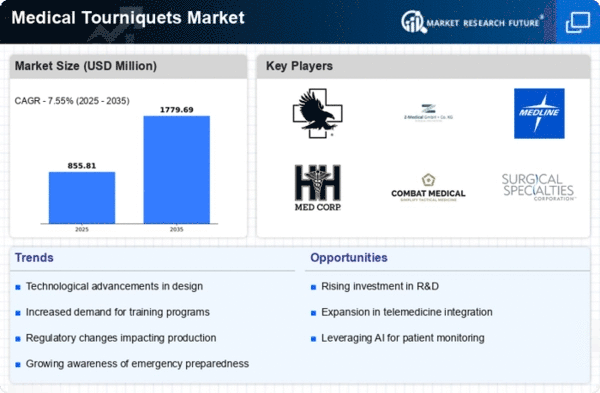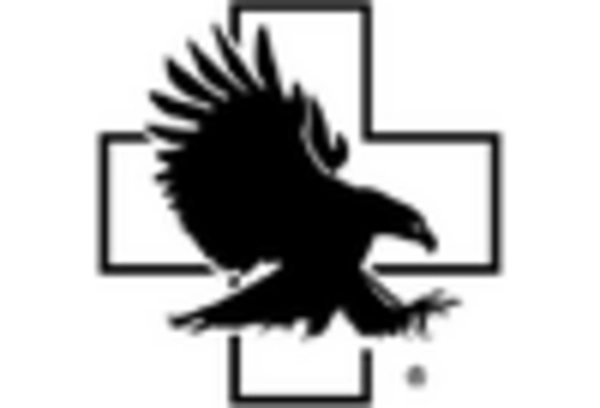Market Analysis
In-depth Analysis of Medical Tourniquets Market Industry Landscape
Modern medical technologies and an emphasis on emergency medicine have transformed the tourniquet industry in recent years. The military utilized tourniquets, but now private healthcare uses them, growing the industry.
Accidents, injuries, and operations are driving up medical tourniquet demand, affecting the industry. Emergency responders, hospitals, and military healthcare staff drive market growth.
The market has changed greatly due to bandage technological advances. Pneumatic and computer tourniquets are used in many healthcare settings because they are more precise and easy to use. These innovative innovations address the requirement for functional, user-friendly technology. People realize how crucial tourniquets are to halt major bleeding, hence the industry has expanded. Training programs have helped physicians, first responders, and average people regard tourniquets as lifesaving. This boosts market demand. Legal atmosphere affects medical tourniquet market. Companies adopt quality standards because strict restrictions ensure product safety and efficacy. Entering and remaining in a market requires following the rules. Medical tourniquet firms are both well-known and new, making the market competitive. Mergers, acquisitions, and collaborations help organizations enhance their goods and expand globally. Health care has helped emerging economies expand their markets. People are learning about modern medical equipment and spending more on healthcare. This allows market players to enter new markets. Despite advances in technology, cost still drives market responses. Medical tourniquets must be affordable, especially in low-cost areas. Low-cost choices offer firms an advantage over competition. Market participants increasingly prioritize customization and product differentiation. Tourniquets with remote monitoring or ergonomic shapes may fulfill healthcare demands and preferences. The COVID-19 pandemic demonstrated the need of flexible supply chains. Supply chain issues such raw material shortages and transportation issues have hurt the medical tourniquet business. Companies are adapting to these difficulties to ensure client delivery. Telemedicine has also transformed the tourniquet market. Patients and caregivers may require tourniquets and other medical instruments during remote medical visits. New healthcare delivery methods alter the market. As environmental concerns grow, the medical device industry is interested in eco-friendly goods and manufacturing processes. Sustainable market participants may appeal to healthcare and environmentalists.


















Leave a Comment